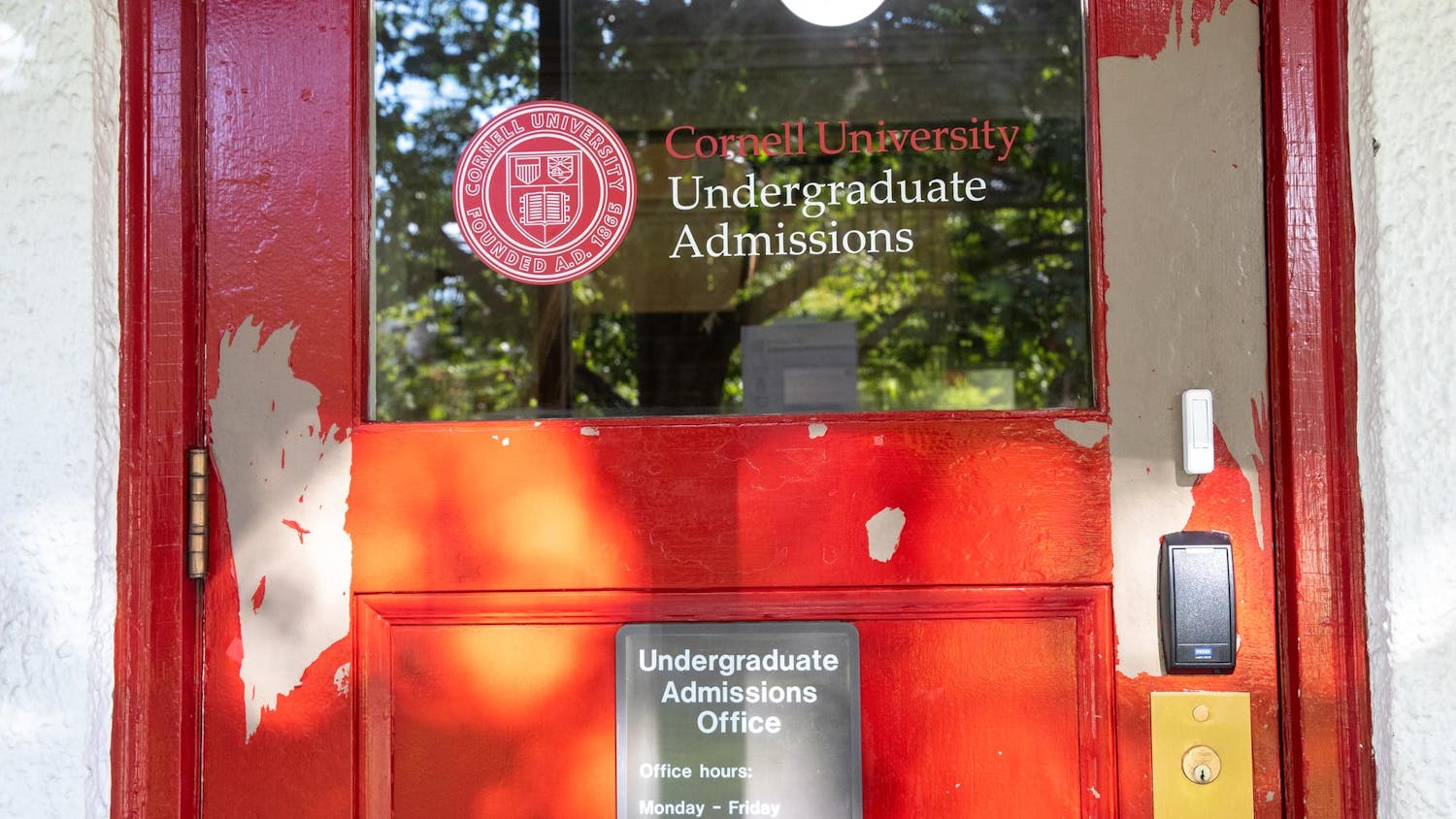After the unveiling of the Republican tax bill Thursday, university presidents across the country were quick to publicly rebuke the bill for its proposed taxes on endowments and potential repeal of a tax exemption for graduate students. Among these presidents was Cornell’s very own Martha E. Pollack.
The proposed bill includes a 1.4 percent excise tax, section 4969 of H.R. 1, on endowment income for colleges and universities with at least 500 students and assets of $250,000 or more per full-time student. The National Association of Independent Colleges and Universities estimate this tax would affect 70 colleges.
Cornell, with a reported full-time enrollment of 23,016 in 2017 and endowment value of roughly $295,000 per student, would be subject to the tax.
Pollack, in an interview with The New York Times, estimated the cost to the university would be $10.5 million annually.
A loss in endowment value would likely result in “less money to spend on institutional aid, research, new libraries and other campus buildings and facilities,” according to Karin Johns, director of tax policy at NAICU.
She warned that students may see “a lower aid package as a result.”
However, while Prof. Ronald Ehrenberg, industrial and labor relations, said the University “would have to decide where cuts should be made” in order to accommodate a smaller budget, he deemed it unlikely that cuts would be made from aid packages.
Liz Clark M.S. ’00, director of federal affairs at NACUBO, emphasized that the endowment fund is necessary for maintaining the stability of a university in the event of market fluctuations. Carefully managed to support current students and students in perpetuity, endowments are not simply a “rainy day fund,” she said.
Because colleges and universities are distinguished as 501(c)3 non-profit organizations, their endowments have historically been tax-exempt. The exploding value of endowments in recent years may have made Congress see “that pool of money as an easy target,” said a Cornell alumna working at a D.C. tax policy think tank.
Pollack slammed the proposal in a statement to The Associated Press, arguing that it had “no clear policy objective other than raising revenue.”
“It would likely have the perverse effect of making colleges and universities like Cornell more expensive while reducing our ability to provide quality education for economically disadvantaged students, conduct research for the public good and undertake public engagement services that are critical to our mission,” she said.
In a statement sent to graduate students Monday night, Barbara Knuth, dean of the graduate school, said that Cornell leadership, trustees, alumni and government affairs team are working to “to lobby members of Congress to revise the tax proposal before it is voted on in the House of Representatives, or a similar bill is introduced in the U.S. Senate.” Cornell is collaborating with other higher education peers and organizations including NACUBO on this effort.
Notably, the requisites for the excise tax were amended within days of the bill’s release, following media attention from The New York Times and Washington Post.
The bill originally proposed to tax colleges and universities with assets of $100,000 or more per full-time student — affecting nearly 160 institutions across the country. Since Thursday, the bill was amended to increase that number to $250,000.
Clark said that two different factors of the bill could result in reduced donations, contributing to what Pollack describes as a perverse effect.
With the knowledge that a portion of their donation could end up in the pockets of the federal government because of this tax, Clark said the tax could make alumni pause before donating.
Admitting this is an “abstract” effect, Clark said the tax “is a step toward the government having an opinion about where donors choose to direct their charitable giving.”
The second effect would be that the bill also eliminates itemized tax deductions for donations, which reduces the appeal for potential donors to give.
“With the contributions, especially to small colleges and universities, my direct experience is that the deductibility is very often the primary factor and particularly in the context of larger donations,” said prominent Cornell donor Philip Bartels ’71. The Office of Alumni Affairs and Development were unable to provide a comment in time for publication.
NACUBO estimates that charitable giving could be substantially affected by this repeal, Clark said, because “charitable deduction will no longer be an option for more than 90 percent of taxpayers.”
The effects of potential limited donations could be dramatic, as charitable giving is not used only to support endowments for institutions as non-profit organizations but “a significant amount of charitable giving goes into the annual budgets of colleges and universities,” Clark said.
However, supporters of the proposal, including Rep. Tom Reed (R-N.Y.) whose district includes Cornell, argue the tax will raise three billion for the federal government over the next 10 years, according to The New York Times.
Beyond the tax bill’s proposed tax on university endowments and elimination of tax deductions for donations, some graduate students feared the potential effect of the GOP bill when they file for taxes annually.
Currently, when graduate students file taxes, the money received from their respective universities that covers tuition expenses is not considered taxable income under the qualified tuition reduction, section 117(d) of the tax bill.
However, the GOP Tax Bill repeals section 117(d) — in such a case that “if [it] goes through, the pursuit of knowledge in the U.S. will collapse for a generation,” Anna Waymack, grad, said in a message Monday afternoon.
Because Cornell does not rely on this section for funding graduate students — rather students receive qualified scholarships through other sections of the current tax code — the proposed repeal will not have an impact on the tuition for Cornell’s graduate students, Knuth said in her statement Monday.
But, not all universities’ graduate students will be so safe. The effects of the appeal are still to be determined for students across the country.
“The only beneficiary of this plan — its only impact — will be more revenue for the U.S. Treasury,” Johns said. “We continue to believe that it is fundamentally flawed and should be eliminated.”

Pollack Slams GOP Tax Plan, Says It Would Cost Cornell Millions
Reading time: about 6 minutes
Read More










